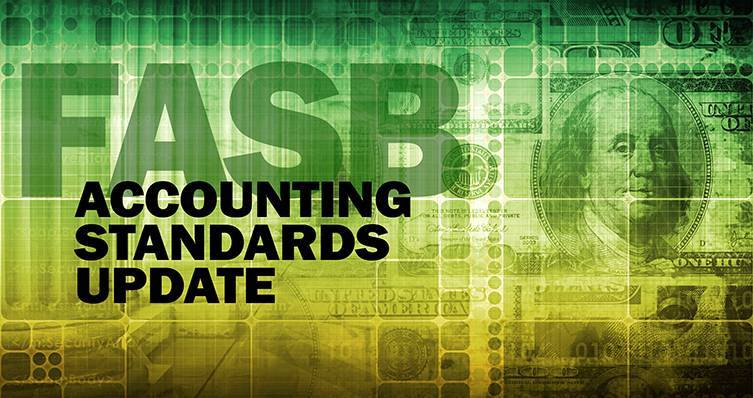
A Financial Accounting Standards Board (FASB) proposal would modify the accounting rules for disclosing taxes paid in the United States and overseas. The result, it says, would enhance transparency about companies’ exposure to changes in tax legislation and the global tax risk they may face.
But public and private business leaders are joining the U.S. Chamber of Commerce to voice their opposition. Stakeholders have 75 days to provide public comments.
Changes to the rate reconciliation table
The most significant items in Proposed Accounting Standards Update (ASU) No. 2023-ED100, “Income Taxes (Topic 740): Improvements to Income Tax Disclosures,” are changes to disclosures related to amounts paid for tax and the rate reconciliation. If finalized, companies will be required to break out amounts paid for taxes between federal, state and foreign taxing jurisdictions, rather than just disclose a lump sum amount.
The rate reconciliation will require disaggregation into the following eight categories:
- State and local income tax, net of federal (national) income tax effect
- Foreign tax effects
- Enactment of new tax laws
- Effect of cross-border tax laws
- Tax credits
- Valuation allowances
- Nontaxable or nondeductible items
- Changes in unrecognized tax benefits
Under the proposal, these categories would be further disaggregated by jurisdiction and for amounts exceeding 5% of their domestic tax rate. The rate reconciliation table would need to disclose both dollar amounts and percentages. Currently, companies can disclose either the dollar amounts or the percentages.
To categorize reconciling items, the state and local income tax category would reflect income taxes imposed at the state or local level within the jurisdiction (country) of domicile. The foreign tax effects category would reflect income taxes imposed by foreign jurisdictions. The remaining categories would reflect federal (national) income taxes imposed by the jurisdiction (country) of domicile.
Additionally, for the state and local category, a public company would be required to provide a qualitative description of the state and local jurisdictions that contribute to most of the effect of the state and local income tax category. The company would provide an explanation, if not otherwise evident, of the individual reconciling items disclosed, such as the nature, effect and significant year-over-year changes of the reconciling items. On an interim basis, public companies would provide a description of any reconciling items that result in significant changes in the estimated annual effective tax rate from the effective tax rate of the prior annual reporting period.
Private companies would be required to provide qualitative disclosure about specific categories of items and individual jurisdictions that result in a significant difference between the statutory tax rate and the effective tax rate. The FASB contends that the enhancements to the current rate reconciliation table will enable investors to better assess a company’s worldwide operations, related tax risks, tax planning and operational opportunities, all of which affect its tax rate and prospects for future cash flows.
Other changes
Under pressure from U.S. Senate Democrats in 2019, the FASB previously issued a proposal to require more robust tax disclosures. However, Proposed ASU No. 2019-500, “Income Taxes (Topic 740): Disclosure Framework — Changes to the Disclosure Requirements for Income Taxes,” stalled due to pushback from stakeholders during the comment period.
The current proposal retains some aspects of the previous version. Specifically, Proposed ASU 2023-ED100 would add disclosures of pretax income (or loss) and income tax expense (or benefit) to be consistent with Securities and Exchange Commission Regulation S-X 210.4-08(h), “Rules of General Application — General Notes to Financial Statements: Income Tax Expense.” The proposal would also remove disclosures that no longer are considered cost beneficial or relevant.
Opposition letter
The FASB contends that the proposed changes wouldn’t be costly to apply because the information is already available in IRS filings. However, there’s substantial opposition from public and private companies, and a month before the proposal was issued, the FASB received a letter from U.S. Chamber of Commerce expressing the group’s concerns.
The Chamber said it believes that the FASB proposal is politically motivated, not investor driven, and oversteps the FASB’s authority. They argue it would require companies to disclose too much information, which in turn could be used politically “to vilify firms and deter investments.” Namely, the enhanced disclosures could be manipulated to show that corporations don’t “pay their fair share.”
The Chamber wants the FASB to disclose those with whom it has consulted on the project and meet with the business community to discuss the proposal before it’s approved.
Comments wanted
Companies have until May 30 to submit comments on the income tax disclosure proposal.
“We encourage all stakeholders to review and share their views on the proposed changes and whether they believe those proposed changes would improve this important area of financial reporting,” FASB Chair Richard Jones said.
If finalized, the proposal will become part of U.S. Generally Accepted Accounting Rules by the end of 2023, meaning that it would be applied retrospectively.
© 2023 KraftCPAs PLLC